For months on end, Tim Rau frequented streets of Fort Collins, Colorado, and Denver’s Carr Park, often escaping into the worlds of Stephen King and John Grisham novels, which sharply contrasted with his own reality of being homeless.
“Being in the streets can be scary,” said the slim 53-year-old man with glasses and a dark blue baseball hat. Rather than staying overnight in a shelter, before the sun set, he tucked his book away in a shopping cart with all his blankets, clothes, toiletries and some food. He walked to a nearby office building to get some sleep. Around 4:30 a.m., before the workers returned, he headed back to the park and his novels once more.
In those moments, Rau had little faith, though he had been brought up Catholic and practiced his faith in parochial schools through sixth grade.
“When you are in the streets, it is about survival. You worry if you can find something to eat. Do you have enough clothes to keep yourself warm?” Rau said, “After becoming homeless, I started to move away from spirituality.”
He did not pray. He was too proud to go to church in his situation.
Your tax-deductible gift helps our journalists report the truth and hold Christian leaders and organizations accountable. Give a gift of $30 or more to The Roys Report this month, and you will receive a copy of “Baptistland: A Memoir of Abuse, Betrayal, and Transformation” by Christa Brown. To donate, haga clic aquí.
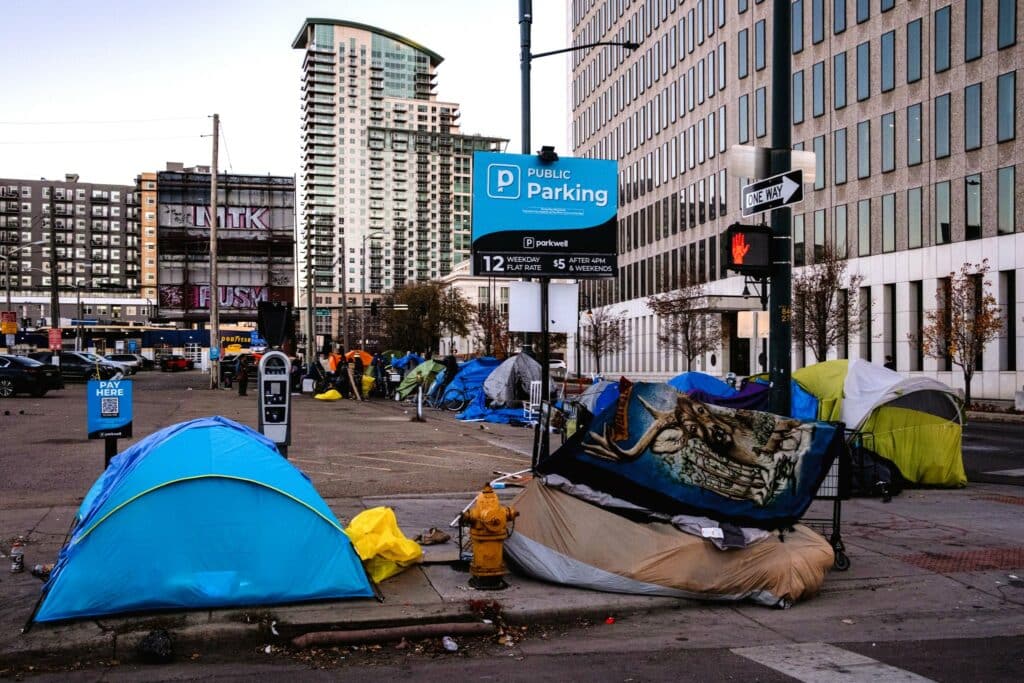
“I was pretty much spiritually bankrupt,” he said. He knew he could do more than being on the streets, but it was difficult. “There was alcohol addiction. It helped me to numb the pain and forget,” he said.
While he was on the streets, once or twice a month, he began encountering chaplains from a local non-profit trying to reach the unhoused. It was the only contact he had with faith during that time.
“Somebody saying, ‘Do not forget you are loved,’ made me feel not so alone,” he said.
His encounters with the chaplains would ultimately lead to some life changes for him, though nothing happened overnight. Rau’s story illustrates the challenges for both the unhoused and the chaplains trying to serve them. The unhoused can end up on the streets due to a myriad of problems, including a housing crisis, social inequalities, racism, domestic violence or mental health issues and addictions.
Chaplains have to be delicate on what questions and subjects they talk about if they want to establish a connection.
“It can be very difficult because many times, they may feel that they have been abandoned by families and friends and by God. So, we will try to help them, hopefully, to understand that we personally do not feel that they are abandoned by God,” said Rene Palacios, director of chaplaincy and community care at the Denver Rescue Mission.
Rau had appreciated the presence of chaplains on the streets, and in July 2022, he entered the New Life program run by the Denver Rescue Mission, a non-denominational Christian organization working with the unhoused. New Life is a year-long rehabilitation program designed to assist unhoused men in returning to their regular lives and serves participants in both a Denver and northern Colorado location. The program’s approach includes providing training opportunities, job search assistance, counseling and spiritual guidance from chaplains.
Since the program’s inception in 1997, more than 1,000 men have graduated, meaning that while at the mission, they found jobs and housing. But many struggle to reach that point. Last year, 84 men graduated out of the nearly 300 men who had entered New Life’s programs that same year in its Denver and northern Colorado locations, according to Stephen Hinkel, the mission’s public relations manager. The program works on a rolling basis. At the moment, 72 men, including Rau, are in the Denver program, and another 72 are at the northern Colorado location.
Many of the program’s participants come in with a checkered past, which may include some kind of criminal record, such as a DUI or drug possession. Since the mission also welcomes children and families at the same facility that hosts the New Life Program participants, it conducts background checks and does not accept people with open criminal cases and registered sex offenders.
Upon joining New Life, Rau, like his fellow participants, immediately got off the streets. He moved into a shared room with another program member at The Crossing facility, a two-floor building in Denver. Rau’s days centered on unpaid work for the mission for the first six months, training to acquire new life skills, and personal reflection.
The unhoused come to the program with varying spiritual background and experiences.
“I like to meet people where they are (spiritually),” said Mark Roberts, one of the mission’s chaplains. “Some people come to the program and even though it is faith-based, they right away say, ‘I will do my 20 minutes with you, but I am not interested.’”
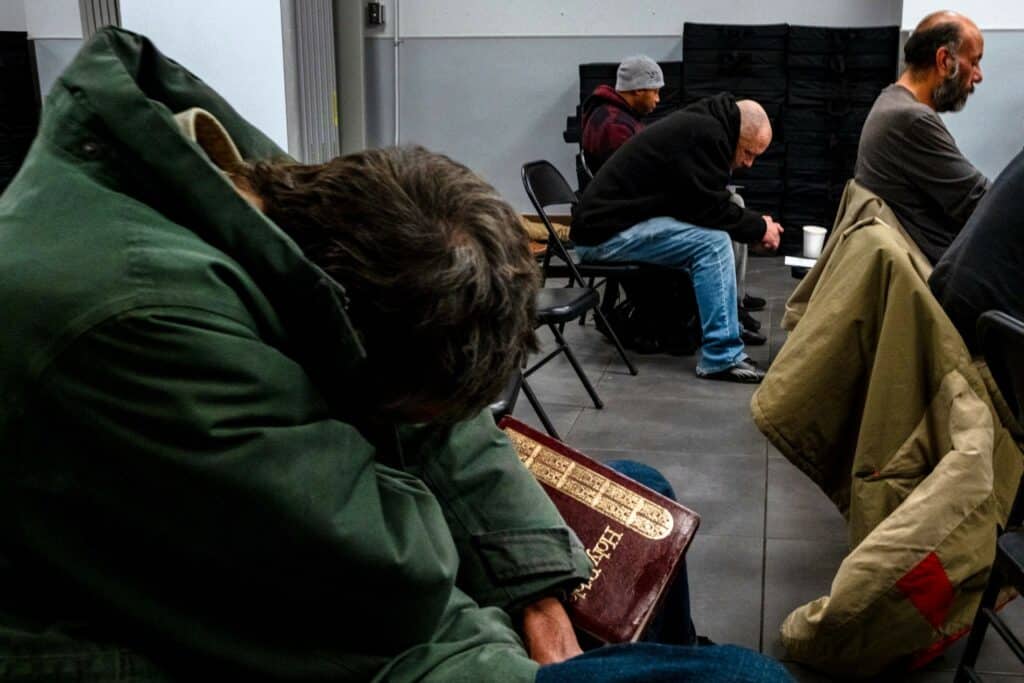
In such cases, Roberts asks them what they believe in.
Rau searched for this particular program because its spiritual aspect intrigued him. Rau’s first meeting with the 64-year-old Roberts was in the chaplain’s office, where nearly every wall was adorned with books, including novels and, naturally, Bibles, as well as photos of his two stepchildren and four adopted children.
Roberts said his strategy with the unhoused is simple: “First connect, then direct.” The way he connects with people is on a personal level. “I talk to them about their hobbies, may it be musicals or sports,” said Roberts.
Rau liked Roberts’ approach.
“Mark was very laid-back. It was as if we were sitting in a bar: ‘Hey, how is it going?’ He does not force religion down your throat,” Rau said.
Rau added that the pandemic and high prices of housing led to his homelessness, and at the same time, he said, he has struggled with alcohol addiction for two decades.
During the 1990s, he had married, and he and his wife had three children. He also started studying computer science at a community college, but then quit and began working full-time in retail. He kept on changing jobs, he said, as he searched for better paying opportunities. Rau said he does not remember everything during that time. He said many dates of life events were blurred.
In 2005, he enrolled in a massage therapy program but withdrew before the end of the term, according to the massage school he attended. Rau said alcohol began to be a problem that impacted his job history. “I started drinking before, during work. I called in late or sick often,” said Rau.
In the 2000s, after 14 years of marriage, he got divorced. He kept on changing jobs and his residences. Rau said he does not remember everything during that time, he said many dates of life events were blurred. For a short period, he rented the basement in his brother’s house, but they did not get along. Another time, he rented a room in a house and met his girlfriend. For various reasons, the couple had to move out of the house and ended up on the streets. He was too proud to ask any of his three adult children for help.
He was in a state already overwhelmed by its growing unhoused population. From 2012 to 2022, chronic homelessness in Colorado increased by 130 %, and 66 % of the unhoused live in the Denver metro area. Denver was in an emergency state on homelessness from July last year until the end of 2023.
Denver Rescue Mission’s five chaplains across its facilities and programs in Denver try to figure out the best approach to reach the unhoused. Some chaplains organize chapel meetings with gospel songs and hot coffee or movie nights. Other chaplains try walks, hoping people will open up when on the fresh air, or Bible readings and individual sessions. New Life participants are required to do a minimum of one individual session a month.
Palacios, the director of the mission chaplaincy program, said the five chaplains hold approximately 300 individual meetings each month.
“We are not meeting the demand at the moment,” he said, adding that more people would like to see the chaplains who complement the work of counselors, who guide participants through addiction, mental health issues and traumas.
Both counselors and chaplains in the New Life program are helpful, Rau said.
“I wanted to figure out if there was something wrong … because I kept on going back to alcohol. So I am trying to figure out what the problem is in my head. And then I can take steps to fix it,’’ he said. “A counselor gives you the book-knowledge. Chaplains took the religious side of it. They are talking about your faith. They both are helpful but in different ways.”
Having had problems with alcohol addiction for years, Rau said “there is no way to beat this disease without having God on your side.”
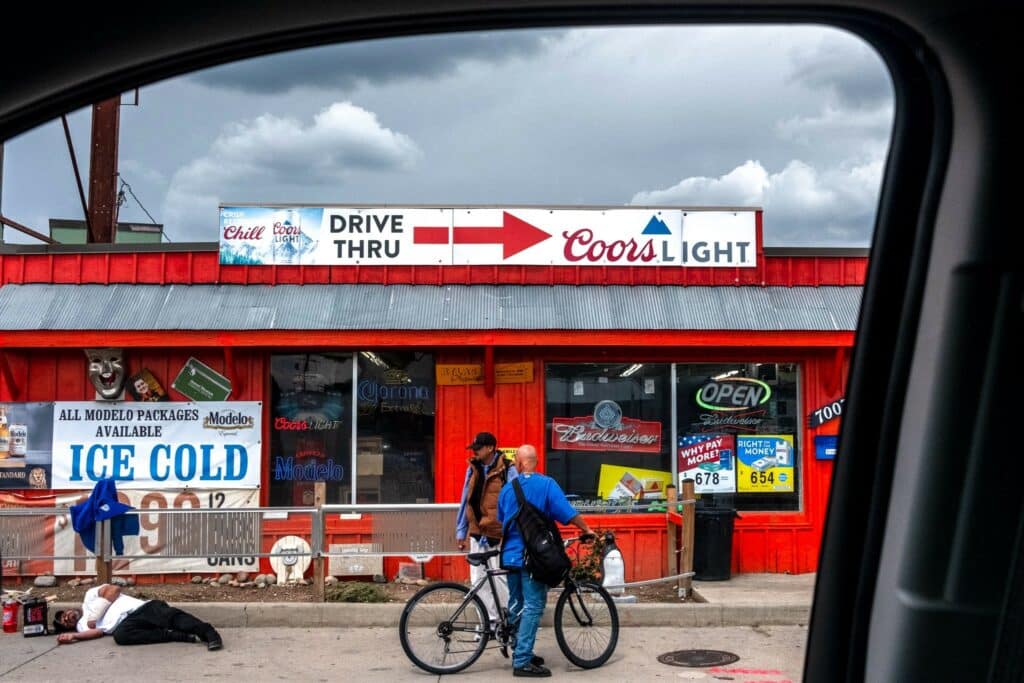
But even an abundance of counseling could not keep Rau’s life from derailing after nearly a year in the New Life Program. In his first six months of the program, he worked at the mission. In the second phase, he got an independent job as a front desk clerk at a Hilton hotel in Denver and was saving money to move on. Then the hotel ownership changed, and he felt his job was insecure. Around the same time, Rau’s sister became ill with liver failure, and he began to help taking care of her when he could take free time from the program. At this stage, Rau began drinking again. “I got kicked out of the program,” he said.
The program requires participants to be substance-free, and to heed to a curfew of 8 p.m. unless they have an excused absence, Hinkel said.
Roberts could tell something was awry a few weeks before Rau left the program. “I could see it coming. He stopped talking to me,” he said. “Sometimes it happens (that they stop talking) because they do not want me to start asking questions. They do not want to be honest.”
The possibility of relapse is a challenge for chaplains, Roberts said. “It is about building relationships and that takes time. [Sometimes], you start something and suddenly, they relapse,” Roberts said.
Every participant who has had a relapse and been expelled from the New Life Program can reapply 30 days later to re-enter.
In October 2023, a few months after he had been kicked out, Rau reapplied and was accepted.
Back to God
Rau embraced the spirituality aspects of the program he had experienced before. Three times a week, he went to the storage room of Denver Rescue Mission to sort out clothing, and communal worship was a part of the process.
As is typical, on one afternoon he joined seven other program participants in a circle with Roberts, another chaplain and two supervisors in the storage room. Chaplain Jonnell Ashley — a former unhoused person himself — talked about the importance of first praying for others and then for themselves. He reminded them that God was present for them.
Rau picked a place next to Roberts, who wore a red vest labelled with the word chaplain. The group meetings, Rau said, help build a sense of family.
After his return to the program, Rau met frequently with Roberts even though he was assigned to another chaplain.
“Mark knows everything about me, about my family history,” he said of his comfort level with Roberts.
Rau said his personal relationship with God has changed throughout the program. Step by step, Rau returned to spiritual practices, including praying and going to a nearby church. He also now meditates.
When he returned to the program, Rau had to start from the beginning. He was not happy about it, but he tried to see it as an opportunity. In February, after four months of being back at The Crossing facility, he said he was focusing on strengthening his faith in the Lord, spending more time repairing relationships with his children, and staying sober.
“There is a certain pattern that you must go through,” he said. “But if it is a way to get from point A to point B, then that is fine. It is God’s way of teaching me patience.”
Esta historia fue publicada originalmente por Religión desconectada.
Magdalena Rojo is a freelance journalist focusing on social and global issues. Noel Rojo is a photographer and journalist fellow with the University of Southern California’s Center for Religion and Civic Culture.




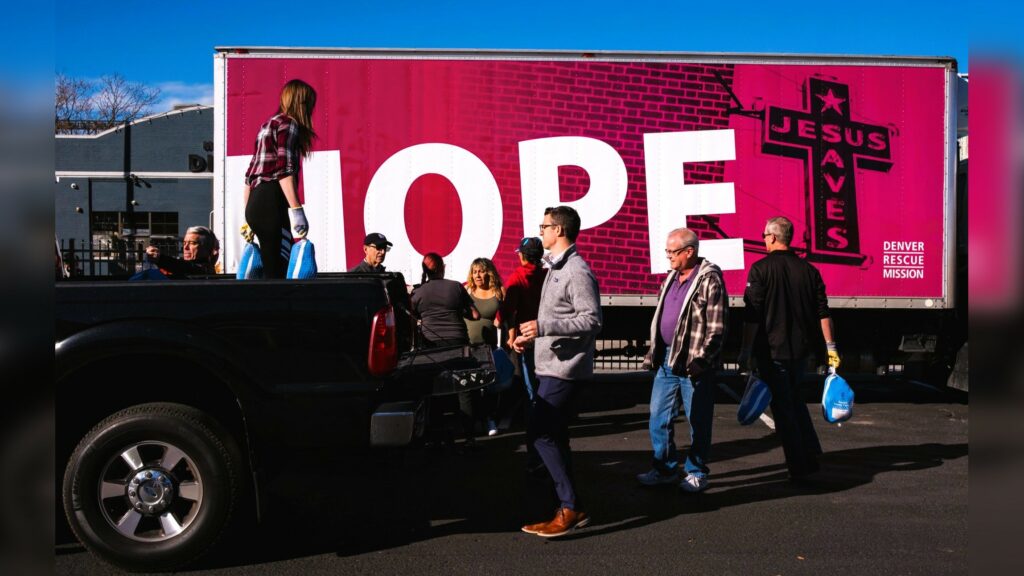
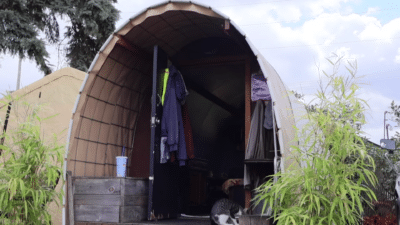
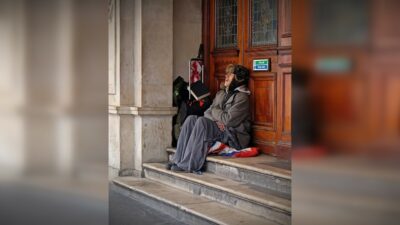
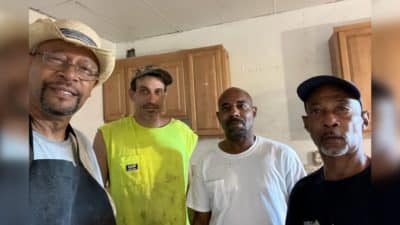
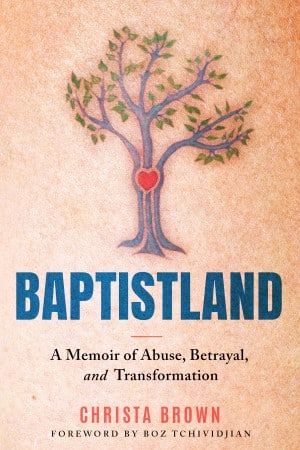
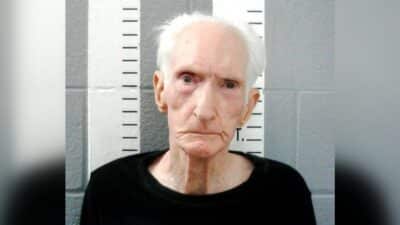

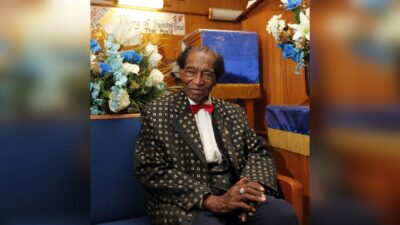
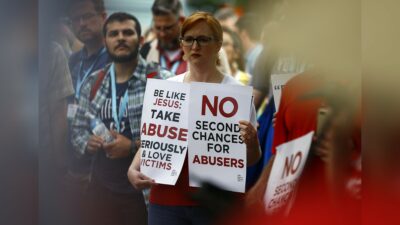








Una respuesta
An article about when Christians do as they should, serving the poor, and honoring God with their efforts, and what does it get? Barely any comments on the Roys Report.
Nice work, Denver Chaplains!